Contributing Authors
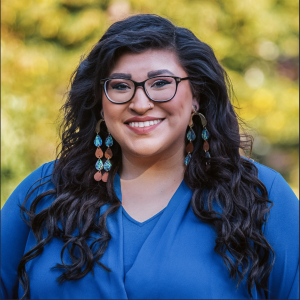 Dr. Autumn Asher BlackDeer is a queer decolonial scholar-activist from the Southern Cheyenne Nation and serves as an assistant professor in the Graduate School of Social Work at the University of Denver. Her scholarship illuminates the impact of structural violence on American Indian and Alaska Native communities. Dr. BlackDeer centers Indigenous voices throughout her research by using quantitative approaches and big data as tools for responsible storytelling. Dr. BlackDeer is a racial equity scholar with an emphasis on Indigenous tribal sovereignty and is deeply committed to furthering decolonial and abolitionist work.
Dr. Autumn Asher BlackDeer is a queer decolonial scholar-activist from the Southern Cheyenne Nation and serves as an assistant professor in the Graduate School of Social Work at the University of Denver. Her scholarship illuminates the impact of structural violence on American Indian and Alaska Native communities. Dr. BlackDeer centers Indigenous voices throughout her research by using quantitative approaches and big data as tools for responsible storytelling. Dr. BlackDeer is a racial equity scholar with an emphasis on Indigenous tribal sovereignty and is deeply committed to furthering decolonial and abolitionist work.
You can read more about Dr. BlackDeer’s work here.
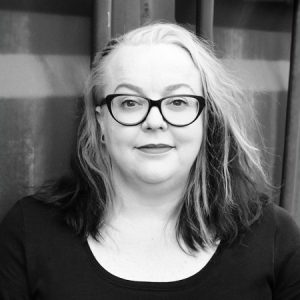
Dr Caelli Jo Brooker is a multidisciplinary academic with over twenty years’ experience as a creative professional working across the creative industries and tertiary education sectors. As an educator and researcher, she brings multidisciplinary relationships and experience to the conception, curation, direction, and presentation of engaging and valuable experiences for diverse audiences. A deep respect for creative cultures characterises her research approach, which engages in multiple forms of creative practice, education, and collaboration as they relate to materiality, visuality, identity and culture. An advocate for visual, participatory, sustainable, and collaborative approaches, as well as Aboriginal ways of knowing, being and doing, she works in research and teaching at The Wollotuka Institute for Indigenous Education and Research at The University of Newcastle, Australia.
You can read more about Dr. Brooker’s work here.
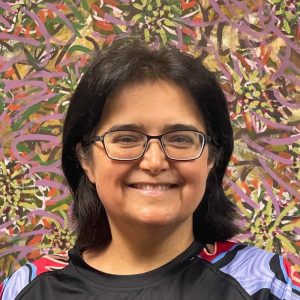
Kathleen Butler, Associate Professor, is the Head of the Wollotuka Institute at the University of Newcastle. Kath has experience in local, state, national and international Indigenous engagement contexts in community and education contexts. She has held Executive positions on her Local Aboriginal Land Council; Home and Community Care funded service; and Local and Regional Education Consultative Group and currently sits on the Board of the Barang Regional Alliance.
The longevity and growth of her commitment is demonstrated by her recognition in 1994 as the NSW NAIDOC Aboriginal Youth of the Year to the 2015 award as the inaugural Hunter Region Equity and Diversity Champion and 2022 Citation for Outstanding Contribution to Student Learning (Neville Bonner Award for Indigenous Education category).
As the Indigenous Cultural Competency Coordinator of the Indigenous Cultural Competency Model Project for Universities Australia, and as the Senior Officer at ACARA coordinating the Aboriginal and Torres Strait Islander Histories and Cultures Cross-curriculum Priority for the first national K-10 curriculum, Kath has managed multiple teams collaborating nationally; negotiating with Area specialists; community stakeholder groups; seven state/territory education jurisdictions; while remaining consistent with federal education ministerial oversight. Kath was the first Australian, first woman, and first Aboriginal person to be awarded a Toihuawera Visiting International Fellowship at the University of Victoria, Wellington New Zealand.
You can read more about Dr. Butler’s work here.
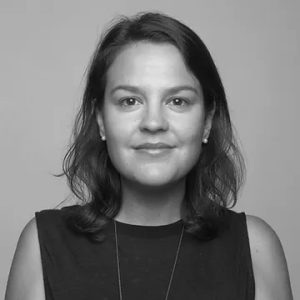
Michelle Catanzaro is a creative director, researcher and design academic at Western Sydney University. Building on over ten years’ experience in the Creative Industries, Michelle’s current practice focuses on creating space for young people to draw on creativity and visual language to express their cultural, political and social ideals. Specifically, Michelle is working with a transdisciplinary team to explore how student climate activism is shaping Australia’s political and democratic culture. In collaboration with her colleagues at the Young and Resilient Research Centre, Michelle has led the development of MAPIMO, a digital mapping tool that enhances participant engagement across diverse projects and themes by exploring the emotive relationships that exist between people and their environments.
You can read more about Catanzaro’s work here.
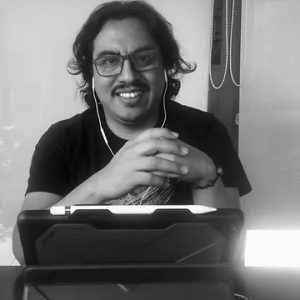
Kiado Cruz, es comunicador zapoteco, activista e investigador social perteneciente al Pueblo Xidza. Es co-fundador de la organización Surco A C, ubicado en la ciudad de Oaxaca. Su radica en temas de acceso a la información, conocimiento abierto en tecnologías y educación comunitaria. Actualmente esta colaborando en una iniciativa llamado INDIGITAL, la cual se enfoca en acceso a la información en lenguas indígenas como una forma de apropiación de los derechos digitales por los pueblos Zapotecos, de Oaxaca, en el sur de México.
Kiado Cruz is a Zapotec communicator, activist and social researcher belonging to the Xidza People. He is co-founder of the organization Surco A C, located in the city of Oaxaca. His work focuses on issues of access to information, open knowledge technologies and community education. He is currently collaborating in an initiative called INDIGITAL, which focuses on access to information in indigenous languages as a form of appropriation of digital rights by the Zapotec peoples of Oaxaca, in southern Mexico.
You can read more about Cruz’s work here.
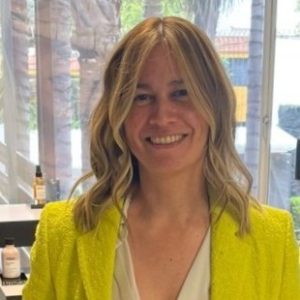 Dr. Miroslawa Alunowska Figueroa is a passionate Mexican engineer with a keen interest in exploring the dynamic interaction between technology and its impact on society. Her journey in the field of engineering began with a deep fascination for how innovative technologies have the power to shape and transform communities for the better.
Dr. Miroslawa Alunowska Figueroa is a passionate Mexican engineer with a keen interest in exploring the dynamic interaction between technology and its impact on society. Her journey in the field of engineering began with a deep fascination for how innovative technologies have the power to shape and transform communities for the better.
Born and raised in Mexico City, Miroslawa’s early exposure to technological advancements ignited her curiosity, and she soon developed a vision to bridge the gap between cutting-edge technology and its meaningful applications in society. Fuelled by this vision, she pursued a Bachelor’s degree in Chemical Engineering at the National Autonomous University of Mexico, the most internationally recognised university in Mexico, where she excelled academically earning the Magna Cum Laude.
Miroslawa’s commitment to understanding the broader implications of technology led her to embark on a remarkable academic journey. Intrigued by the complex interplay between technology, society, and business, she pursued a Master’s degree in Engineering. Driven by her unwavering passion for creating a more inclusive and diverse technological landscape, Miroslawa was drawn to further her education and expertise in the field. Recognizing the University of Oxford’s reputation as a world-renowned institution fostering cutting-edge research and embracing diversity, she decided to pursue a DPhil in Engineering Science. Throughout her doctoral studies at Oxford, Miroslawa’s research focused on developing innovative approaches to address societal challenges through technology. Her work centered around leveraging artificial intelligence for social good, and exploring ways to enhance technological accessibility for reclaimed water management. Beyond her academic pursuits, Miroslawa has been an ardent advocate for gender equality and diversity in engineering and business spaces. She actively participates in initiatives that promote women’s representation in STEM fields and fosters a supportive environment for underrepresented groups in technology. She participates in hackathons to develop solutions to underrepresented communities such as Indigenous Communities, where she delved deeper into the ethical and social considerations of technological innovations.
Outside of her engineering endeavors, Miroslawa enjoys indulging in her creative side through hobbies like yoga, ballet, and fashion and jewelry design. These passions provide her with a well-rounded perspective, emphasizing the importance of combining artistic expression with scientific innovation. As a trailblazer in the field of technology and a driving force for inclusivity, Dr Miroslawa Alunowska Figueroa continues to inspire the next generation of engineers and leaders. She was the winner of two ”Indigenous Hackathons” and has worked extensively with the Samburu tribe in Kenya co-designing apps with and for the community. With her dedication to creating a more equitable and transformative technological landscape, she strives to leave a lasting impact on society and pave the way for a brighter, more interconnected future.
You can read more about Alunowska Figueroa’s work here.
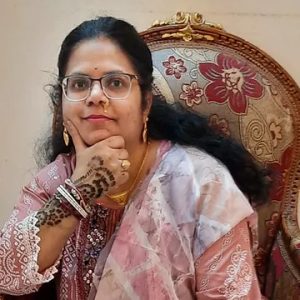
Dr. Laxmi. N. Goparaju is an Environmentalist, a science communicator, a Kathak dancer and an inspiring storyteller, who believes that geospatial technology has the potential to find tangible solutions to real-world problems. Most of her works focus on protecting the environment and natural resources. She is a self-motivated individual committed to the development of women.
Laxmi has empowered women and girls in countless events and encouraged them to pursue STEM. Her present role as a Scientific Advisor at Vindhyan Ecology and Natural History Foundation has made a strong impact and increased the use of geospatial technology in protecting and conserving the tropical forests and the Sloth Bears of the Vindhyan highlands.
Holding a doctoral degree in Environmental science and technology, Goparaju started her research career at National Remote Sensing Centre in India where she spent 5 years as a Junior and Senior Research Fellow. She was associated with the Indian Space Research Organization Geosphere and Biosphere Project named: ‘Community Diversity Assessment in Vindhyans using Remote Sensing and GIS’ which was also her topic for her Thesis.
She is the founder of Geo Sakhi, an online learning platform & community for geospatial women enthusiasts. She has successfully organized a MASTERCLASS which provided free quality education on trending geospatial topics to more that 500 underprivileged youth which helped them regain and enhance their skills, helping them to join the mainstream.
She represented WiG+in the GeoWomen panel at SgGeoFest 2021 in Singapore. Her presentations have highlighted the building of an inclusive and diverse community and empowering women. She was also a member of the Jury for ASEAN Geospatial Challenge 2022. She has been elected as a Humanitarian Openstreetmap Voting member from India 2022.
She likes to involve herself in team building, women empowering and capacity development. Besides this, she engages herself by writing on topical issues related to ecology, global warming, and climate change at ThinktoSustain. She visited many schools virtually during the pandemic through Skypeascientist and had fascinating conversations with children about space science.
Her tutoring and guidance as a mentor at Women in GIS+; African Women in GIS and STEM Mentorship GOALS Mentor Meet and Greet Intrepid Sea, Air, and Space Museum New York has proved beneficial for many students.
Holding a doctoral degree in Environmental Science and Technology, Laxmi is a science communicator, founder of Geo Sakhi, (an online learning platform & community for geospatial women enthusiasts,) regional ambassador of ASIA (2021-22), mentor and SC member at Women in Geospatial +, mentor at African Women in GIS. She has empowered women and girls in countless events and encouraged them to pursue STEM. Goparaju is also a vivid writer, a voracious reader and is proficient at team building. Her involvement in numerous events and lectures virtually has sparked interest in Space science amongst children from all around the globe.
You can read more about Dr. Goparaju’s work here.
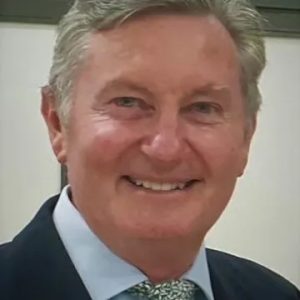
Kriton Glenn: As Senior Advisor to Geoscience Australia for Aboriginal and Torres Strait Islander engagement, my role is to listen, identify, develop and deliver culturally appropriate scientific support, products and training. Focused on ensuring that high quality science is part of all cross-cultural and community engagements.
As Principal Advisor to the Global Earth Observations Indigenous Alliance. We advance an international Indigenous GEO network with dedicated Indigenous Working Groups focused on Indigenous youth, Disaster Risk Reduction, Climate Action, Indigenous Data Sovereignty and Women Empowerment, for both Indigenous and non-Indigenous scholars, practitioners and policy makers to share best practices and experiences.
You can read more about Glenn’s work here.
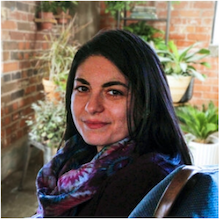
Teodora C. Hasegan holds a PhD in anthropology from Binghamton University (State University of New York, US) and a certificate in Indigenous Peoples’ Rights granted by the Human Rights Education Associates (HREA) and the Human Rights Centre of the United Nations-mandated University for Peace (in Costa Rica). Teodora is a socio-cultural researcher, editor, translator and journalist with international educational background and extensive professional experience in academia, NGOs and media organizations focusing on global contemporary social, cultural, and political issues, including social justice, environment, and human rights. Teodora has been involved in projects at the intersection of anthropology, advocacy journalism, storytelling and civic engagement aiming to promote perspectives and issues that are often underrepresented in the public discourse (especially Indigenous communities and movements on the frontlines of struggles for social and cultural justice, land rights, and Indigenous knowledge) and to raise awareness about the inequalities, lack of freedom and human rights violations worldwide.
You can read more about Hasegan’s work here.
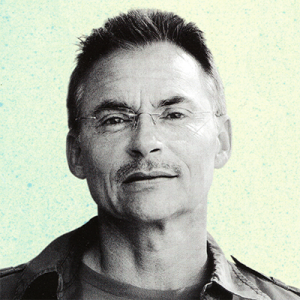 Dan Hawk, Oneida Nation, Wisconsin. Dan was born and raised on the Oneida Indian Reservation. On March 30, 2022, Dan addressed the United Nations Legal Subcommittee of the Committee On the Peaceful Uses of Outer Space by providing the history-making General Exchange of Views. Dan has been appointed to lead the Lunar Surface Innovation Consortium Lunar Dust Interoperability and Standards Focus Group. Dan discovered how lightning strikes and is currently working with the U.S. Occupational Safety and Health Administration to prevent dust explosions in mines and factories.
Dan Hawk, Oneida Nation, Wisconsin. Dan was born and raised on the Oneida Indian Reservation. On March 30, 2022, Dan addressed the United Nations Legal Subcommittee of the Committee On the Peaceful Uses of Outer Space by providing the history-making General Exchange of Views. Dan has been appointed to lead the Lunar Surface Innovation Consortium Lunar Dust Interoperability and Standards Focus Group. Dan discovered how lightning strikes and is currently working with the U.S. Occupational Safety and Health Administration to prevent dust explosions in mines and factories.
Dan enlisted in the Army National Guard out of high school and served in the Navy as a nuclear reactor operator on two Fast-Attack submarines. Dan was a senior power plant operator at UW-Madison and UW-Madison Hospital. While working with the Wisconsin Space Grant, Dan and Dr. Aileen Yingst founded the First Nations Launch and the Tethered Aerostat Program. Following WSGC, Dan supported the Montana Space Grant in ensuring the Salish Kootenai Tribal College was successful and BisonSat was launched on October 8, 2015. Following BisonSat, Dan worked with the U.S. Department of State, to remove Native Americans from the International Traffic and Arms Regulations List. Prior to BisonSat Dan helped the El Paso Community College with two NanoRacks ISS Experiments and launched a payload RockOn payload on a suborbital Terrier-Orion in 2009. Dan is a recognized Amazon Black Earth expert with NASA, NOAA, and the DOE in the latter Dan made one ton of high CEC carbon and is being used to mitigate radiocesium-137 on Bikini Atoll, Republic of the Marshall Islands. Dan currently supports Space Traffic Management, Lunar Surface Innovation Consortium, Green Aero industrial hemp rocket fuel research, NASA Office of Tribal Affairs, and the new National Native American Space Grant. Dan is an International Committee Member for the National Space Society, a Member of the United Nations Indigenous Committee. Dan also is on a number of indigenous and space panels like the Indigenous Research Center, MIT Space Enabled Group, and Anthropogenic Environmental Impact on Space Traffic.
Dan is currently working with NASA to waive Satellite Export Controls to First Nations People, Canada. In cooperation with many entities and institutions, the first tribal sovereignty data blockchain Jay Treaty satellite is being designed.
You can read more about Hawk’s work here.
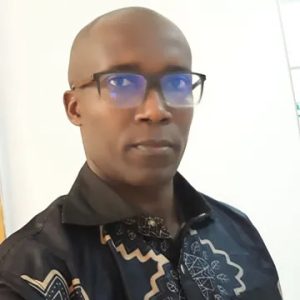
Gonzague Isirabahenda is a Ph.D. candidate in sociology studies at Babes-Bolyai University of Cluj-Napoca/Romania (BBU). His research focuses on the transition from university to work, graduate employability, skills, and underemployment. Subjects related to the career of young university graduates in precarious jobs also attract my attention as they pertain to inquiries on the sociology of work and employment. He has authored various publications on the issue facing young people. He worked as a research assistant at the Faculty of Sociology and Social Work, Babeş-Bolyai University, in the project ‘OVERED: University-to-work transition. A qualitative inquiry on over-qualification among Romanian youth.’ He is collaborating with international think tanks and NGOs, including the European Commission and the Council of Europe in the field of youth, the Global Social Service Workforce Alliance, the British Sociological Association (BSA), the Society for Research into Higher Education (SRHE) and the International Federation of Social Workers (IFSW).
You can read more about Isirabahenda’s work here.
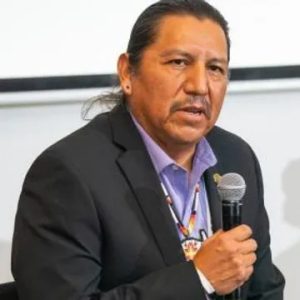
James Rattling Leaf, Sr., currently serves as a Cultural Intelligence Consultant. He was born on the Pine Ridge Indian Reservation and is an enrolled member of the Rosebud Sioux Tribe. He specializes in developing programmes that utilize the interface between Indigenous People’s Traditional Knowledge and Earth System Science. Rattling Leaf shares his Tribal heritage to strengthen his Tribe through education, focusing on community, economic and human development and to teach while preserving the Lakota values and heritage. He works with students to enhance their geoscience experience by developing funding, finding scholarships, and providing mentoring and internships. His higher education comes from Sinte Gleska University. James is a founding member of the GEO Indigenous Alliance that was established at GEO Week 2019 in Canberra, Australia to foster a continued, effective, respectful, and reciprocal relationship with GEO and representatives of indigenous communities from around the world.
You can read more about Rattling Leaf, Sr.’s work here.
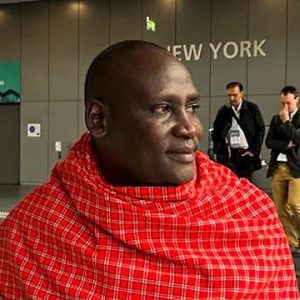
Titus Letaapo is a champion of the community conservation model in Northern Kenya, with over 19 years in conservation and community development. Now support Namunyak wildlife Community Conservancy as Director of community and programs at the Sarara Foundation (TSF). In this capacity, Titus has helped develop successful conservation strategies, spearheaded collaboration between the County Governments and communities, and played a key role in promoting peace between the different ethnic groups in Samburu and neighbouring communities. His work is not only helping create the conditions for sustainable socio-economic development, but also helping to conserve and protect critically endangered species. TSF is a Kenya based NPO working to support a long-term paradigm shift designed to catalyze a healthy, resilient and prosperous landscape in which both indigenous people and wildlife can thrive for multiple generations to come. “Through the Conservancy, communities in Namunyak are realizing the importance of wildlife conservation. They can now adequately manage their rangelands, boost their economies and promote sustainable development by protecting the diverse wildlife they share the landscape with”. Titus is co-founder of the GEO Indigenous Alliance.
You can read more about Letaapo’s work here.
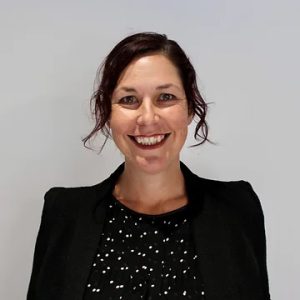
Shelly McGrath is Academic Coordinator at the Wollotuka Institute of Indigenous Education and Research, where she also teaches into the Bachelor of Global Indigenous Studies program while undertaking her PhD. She has settler-heritage and acknowledges the privileges this brings in living and working on the unceded lands of the First Peoples of the country now called Australia. Shelly is a long-time co-resister of colonialism and capitalism, with work located in an academic-activist nexus that focuses on both dismantling settler-colonial systems and structures, and the (re)building of more equitable, ecocentric futures. Having represented her local electorate for the Australian Greens in a federal election and coordinating the regional Amnesty International Australia local group, Shelly recognises the inherent power of First Laws and First Ways and works to create sites of solidarity through decolonial praxes that destabilise white supremacy while forging spaces for Indigenous self-determination and sovereignty.
You can read more about McGrath’s work here.
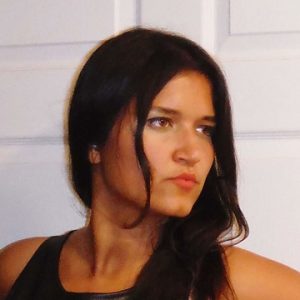
Diana Mastracci Sánchez: I am passionate about using space technology to create a meaningful impact and empower underrepresented communities.
I have over a decade of experience working in the space sector researching and developing space-based solutions with and for Indigenous and underrepresented groups. I have worked with the Jet Propulsion Laboratory (NASA), the European Space Agency, Citizen Cyberlab, the Group on Earth Observations, and the University of Oxford, among others, to co-design innovative applications with and for Indigenous and underrepresented communities. I center user needs and Indigenous ways of knowing to create frameworks, models, and networks that bridge the scientific and technology sector with minority communities around the world. I am co-founder and International Strategic Liaison of the Indigenous led GEO Indigenous Alliance, the only alliance advocating for the access and use of earth observation data at the UN level.
My work has been recognized on an international level. I have presented my research at numerous conferences and was even invited as a keynote speaker at FOSS4G 2021 and World Expo Dubai. Most recently, I was featured on the BBC programme 39 Ways to Save the Planet. I am honored to have been nominated for the 2021 GEO Excellence Awards for expanding the user base of space resources and developing innovative space-based solutions for climate action.
You can read more about Mastracci Sánchez’s work here.
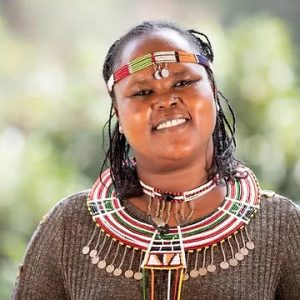
Lilian Nguracha is the Founder of Women Conserve a grass-root organization that aims to empower Samburu women to become great conservationists. She has worked at Northern Rangelands Trust (NRT) as a Gender Specialist, in the Samburu County Government as Chief Officer in the Department of Gender, Culture and Social Services, at Action Aid International in Kenya as a Community Development Facilitator on Local Rights Programme (LRP) Elangata Wuas Kajiado County and at the German Agro Action (GAA) as a Community Mobilizer, Kajiado. Lilian is currently undertaking an MBA in Strategic Management and Leadership at Laikipia University and she holds a Bachelor of Arts Degree in Leadership and Management from St. Paul’s University, Nairobi, and a Diploma in Community Development Project Planning & Mgt by Hampton Community College South Africa. Lilian speaks English, Swahili, Samburu, Maasai and Rendille.
You can read more about Nguracha’s work here.
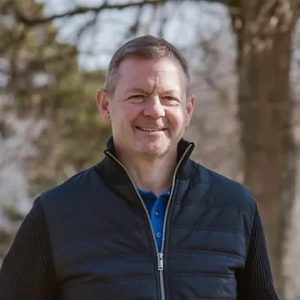
Steven Ramage is founder and CEO of a geospatial advisory services firm called Réseau. He has been helping to support and shape open geospatial communities for more than 20 years.
Up until April 2023, Steven was Chief Engagement Officer at the intergovernmental Group on Earth Observations (GEO) Secretariat in Geneva, Switzerland. During this time Steven was a major ally to the GEO Indigenous Alliance. Today Steven is developing a network of Réseau Associates who are young women geospatial practitioners from Africa, Asia, and Latin America.
He has worked closely with United Nations (UN) offices for biodiversity, climate change, disaster risk reduction, environment, forestry, land, ocean, (fresh) water, and space topics.
He has worked with the UN committee of experts for global geospatial information management (UN-GGIM) for more than a decade, including at the Secretariat in New York, USA.
He is on the Governing Boards of Digital Earth Africa, Digital Earth Pacific, and Digital Earth Americas, and was previously a member of the UK Space Agency Earth Observations Advisory Committee. Steven is a longstanding Fellow of the Royal Geographical Society.
Steven was an owner/director of 1Spatial, a private software development company, for almost ten years before taking on a role as Executive Director of the Open Geospatial Consortium (OGC), and then Managing Director of Ordnance Survey International. He is a Visiting Professor at the Institute for Future Cities, University of Strathclyde, Glasgow. He recently completed a diploma in sustainable finance at the University of Cambridge and a diploma in digital transformation at Stanford University.
You can read more about Ramage’s work here.
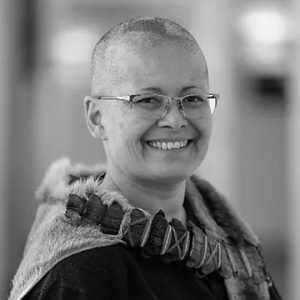
Madison Shakespeare is a multi-disciplinary lawyer and filmmaker who has developed extensive academic and pedagogical experience writing and coordinating the Indigenous Major at Western Sydney University over the past six years. Identifying proudly as a First Nation Australian, a salt water woman born on Gadigal Country of Kin from Nations across New South Wales, Madison is humbled to be entrusted with facilitating ways through which to engage all students in culturally-specific learning journeys. With valuable cultural interface research experience as a member of the Indigenous research team at Flinders’ University Southgate Institute of Social Determinants, Madison has extensive experience in stakeholder engagement in culturally-led research projects focused on addressing social determinants of Indigenous health and holistic wellbeing. As the SA Project Office of the national Ironbark Project and with ongoing research work in an NHMRC grant “Decolonising practice in Aboriginal and Torres Strait Islander primary health care”, she has also been formative in contributions leading to the development of specific program logic models necessary to decolonise public health and research and in transdisciplinary forums.
You can read more about Shakespeare’s work here.
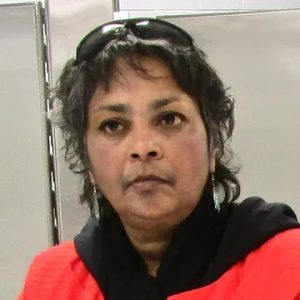
Romola V. Thumbadoo, PhD, Geography, Postdoctoral Research Fellow, is the volunteer coordinator of the Circle of All Nations, founded by late Indigenous Elder William Commanda (Algonquin Canoe Builder, Wampum Heritage Keeper, Chief, Officer of the Order of Canada, Hon PhD). The Circle of All Nations is neither an organization nor a network, but rather a global bridge-building eco-community linked by late Indigenous Elder William Commanda’s unshakeable conviction that in a very fundamental way, as children of Mother Earth, we all belong together, irrespective of colour, creed or culture, and that together, we must regain our respect for this penultimate mother.
Romola is of East Indian ancestry, was born in South Africa, and has resided in Canada since 1970, earning degrees in English Literature at McMaster University (BA Hons and MA.) She worked extensively across the country for the federal government, chiefly within the criminal justice system (working in federal corrections, Indigenous justice and policing, and restorative justice) for over twenty-five years. She is also a writer, photographer and artist.
Over the past two decades, she has supported the efforts of Elder Commanda to advance Indigenous awareness, racial harmony and peace building and environmental stewardship (pro bono). She also serves as voluntary director of the Wolf Project, which is dedicated to honouring efforts to promote racial harmony. Romola is the author of two books on the work of the William Commanda (Learning from a Kindergarten Dropout Books 1 and 2), and has published a photo journal on her kayaking explorations of Bitobi Lake, Quebec, as viewed through the lens of Indigenous wisdom. Romola also honours the Donald Marshall Junior Indigenous justice legacy. Romola met Donald Marshall Junior in 1996, and remained his close friend and activist colleague till his passing in 2009; they worked together on Indigenous Justice and Rights issues, Reconciliation and Peace Building, Strategies for Indigenous Youth Empowerment, and Elder William Commanda’s Vision for an International Indigenous Centre. Circle of All Nations commemorates his legacy each September.
In January 2018, Romola completed her doctoral studies in Geography and Cybercartography, under the supervision of Dr. D. R. Fraser Taylor, Director of the Geomatics and Cartographic Research Centre (GCRC), in the Department of Geography and Environmental Studies at Carleton University; her research examined the Circle of All Nations discourse of late Algonquin Elder William Commanda (Thesis: Thumbadoo, R.V. (2018). Thereafter, she completed a two-year SSHRC postdoctoral research fellowship on his extensive legacy, including on his presence in the online world. She is Executive Assistant to the Director of GCRC at Carleton University. She is currently engaged in further research on the life, work and legacy of Elder Commanda, photoatlassing, cartography and international children’s mapping, and she animates the Circle of All Nations work online and elsewhere.
You can read more about Thumbadoo’s work here.
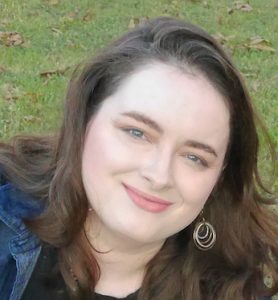
Allegra Villarreal is an educational consultant, writer, artist and professional development facilitator who has taught English in community colleges for 14 years. She earned a joint honours undergraduate degree in International Relations and Middle East Studies from St. Andrews University in Scotland as well as a Master’s degree in Creative Writing from Oxford University. Her teaching practice focuses on critical, responsive and open pedagogies, inclusive and equitable approaches for adult learners, and supporting Latina/o/x students and teachers. She is currently consulting for national and international organizations, writes on educational topics in her newsletter, and teaches Mexican-American literature at Austin Community College.
You can read more about Villarreal’s work here.
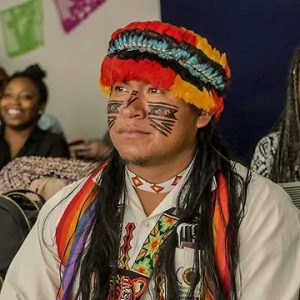
Mario Vargas (Shakaim) is an Indigenous Shuar from the Ecuadorian Amazon who has been defending nature since he was a young boy. He has been the leader and technician of the Shuar Federation of Pastaza, supporting the formulation of a community broadcaster that disseminates information on the rights of the people. Mario is a founding member of the GEO Indigenous Alliance that was established at GEO Week 2019 in Canberra, Australia to foster a continued, effective, respectful, and reciprocal relationship with GEO and representatives of Indigenous communities from around the world. He is a member of the Network of Climate Finance Specialists, as a representative of South America, and currently works at The Coordinator of the Indigenous Organizations of the Amazon Basin (COICA), as Technical Coordinator of the environmental monitoring project “All Eyes on the Amazon” (TOA). Mario graduated from the Polytechnic College of Chimborazo and is specialising in Public Management at the Postgraduate University of Ecuador.
You can read more about Vargas Shakim’s work here.
